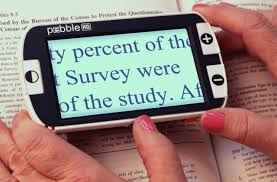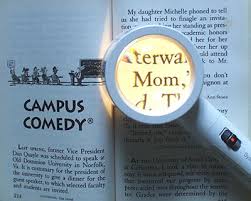It is believed that up to 80% of what children without visual impairments learn is through visual cues.
Therefore, when a visual impairment is present from birth (congenital) it will have a significant impact on development and learning. Loss of vision, even a mild vision loss, can affect all areas of development. Social development is affected as children are not able to pick up on non-verbal clues or if they are unable to make eye contact they may appear disinterested and can reduce sustained social interactions. Behavioural issues can often arise in and outside of the classroom due to the inability to see class work or due to visual fatigue. Loss of vision impacts motor development as a child may not be motivated to move toward that which can't be seen or causes inhibition to move for fear of the unknown. Exploration of the environment and materials is critical in cognitive development, therefore movement is important not only for motor development but for the development of concepts. Language acquisition can also be affected by the loss of vision as active interaction with people and the environment is important in language development. Delays in developing independence in daily living are impacted as incidental learning through observation is not possible for those with significant visual impairments. This impact can be magnified when caregivers, in an effort to help or to rush through activities, complete tasks for the child which creates learned helplessness in the child (Willings, Impact on Development & Learning).
Support in the classroom for a student who has a visual impairment can significantly improve their academic, social/ behavioural, fine and gross motor success. It allows the student to access the school curriculum with ease, while also reducing visual fatigue. Considering a VI Verification for your child will enable them to access support from a Visual Impairment Specialist Teacher and other external support services such as Guide Dogs, Vision Australia, and Education Support Services including physiotherapists, occupational therapists, speech therapists, as well as, orientation and mobility specialists.
Once a student is identified as possibly being eligible to become verified with a visual impairment, an Advisory Visiting Teacher (AVT) or a Teacher specialising in Visual Impairments (TVI) is referred to support this student in the school environment. Both the AVT and TVI will have the same qualifications in regards to their specialist teaching field. An AVT visits a school within their region and provides support to the student , parents and teachers of the student at a school where there is no TVI available. A TVI is only based at a school which is coded as a specialised school, catering for students with a visual impairment, and has the appropriate equipment and resources to meet all the students needs such as a PIAF machine, embosser, assistive technology, low vision aids and tactile or enlarged resources.
Students are identified as being eligible for a VI Verification once the school receives an optometrist or ophthalmologist report provided by a family member. Or, a teacher or TVI may have requested a report if they have concerns around the students vision. Once this report is shared with the TVI, with parent permission, a Functional Vision Assessment (refer to FVA blog) will be carried out and these results will provide more of an indication to the TVI as to whether they will continue in placing an application for verification to the Statewide Vision Impairment Services (QLD, Australia based). Throughout this process, the TVI will communicate with parents, optometrists/ ophthalmologists and subject teachers to gather observations, data and evidence required in applying for the VI verification. Once submitted by the school, an SVIS Statewide Verifier will decide whether the application meets criteria and an outcome will be reached from this.
Once verified, the student may also be referred to the Education Low Vision Assessment Centre (ELVAC based at Narbethong State Special School) for a more thorough assessment, which provides a range of specialised vision assessments, support and information to assist students with vision impairment, their families, school staff and specialist support staff. Assessments assist in developing an understanding of each child's vision condition and associated visual behaviours, facilitate student access and participation, and promote learner engagement. Both the parent and TVI attend this appointment. This information will then be provided to the classroom subject teachers by the TVI throughout the year so that the students individual needs are catered
A VI Verification can have a profound and positive impact on a students development and learning. The earlier this support is put in place, the easier it is to ensure success in the school environment. If you have any concerns around your child's vision, please book an appointment to visit the optometrist. If you have already obtained an optometrist or ophthalmologist report, please pass this onto your school and enquire about the process of applying for a VI Verification. Each state within Australia undertakes a different process in acquiring a verification. If based in QLD, for more information click here.






















Comments